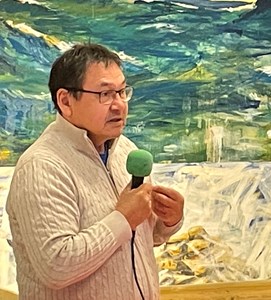Mr Tobiassen said that he will “clarify the legislative framework for the structured and organized collection, sharing and use of hunter and user knowledge” (presentation pdf). The minister participated himself, as a fisherman, in the start of a Ministry of Fisheries and Hunting’s community-based monitoring program in the Uummannaq area some years ago. He said that such use of local knowledge “continues to be important”. The workshop was held from 29 November to 1 December 2022. There were 40 participants.

At the workshop, there was agreement among the key actors in Greenland that the pilot initiatives where fishermen and hunters have provided information on the status and trends in living resources for decision-making have generated useful experiences. The pilot initiatives should be continued and further organized and scaled up, and they should be supported by a suitable legislative framework. Moreover, there should be established a systematic approach for connecting user knowledge with conventional scientific knowledge for informing decision-making, and funds should be secured for the fishermen that are engaged in this work and for the organizational support of their work.
The workshop participants decided to establish a working group for action on user knowledge in resource management in Greenland. They also decided to jointly update the Manaus Letter on participatory monitoring of biodiversity in the coming months. The conclusions from the workshop were sent to the Secretariat of the Convention on Biological Diversity (CBD) as input to COP15 of the CBD in Montréal: Recommendations for the CBD on the use of local and scientific knowledge for informing resource management. The workshop was funded by the University of the Arctic, The Danish Agency for Science and Higher Education, and the EU’s Horizon 2020 programme through the CAPARDUS project.
The workshop is part of the activities of the UArctic Thematic Network on Collaborative Resource Management.
